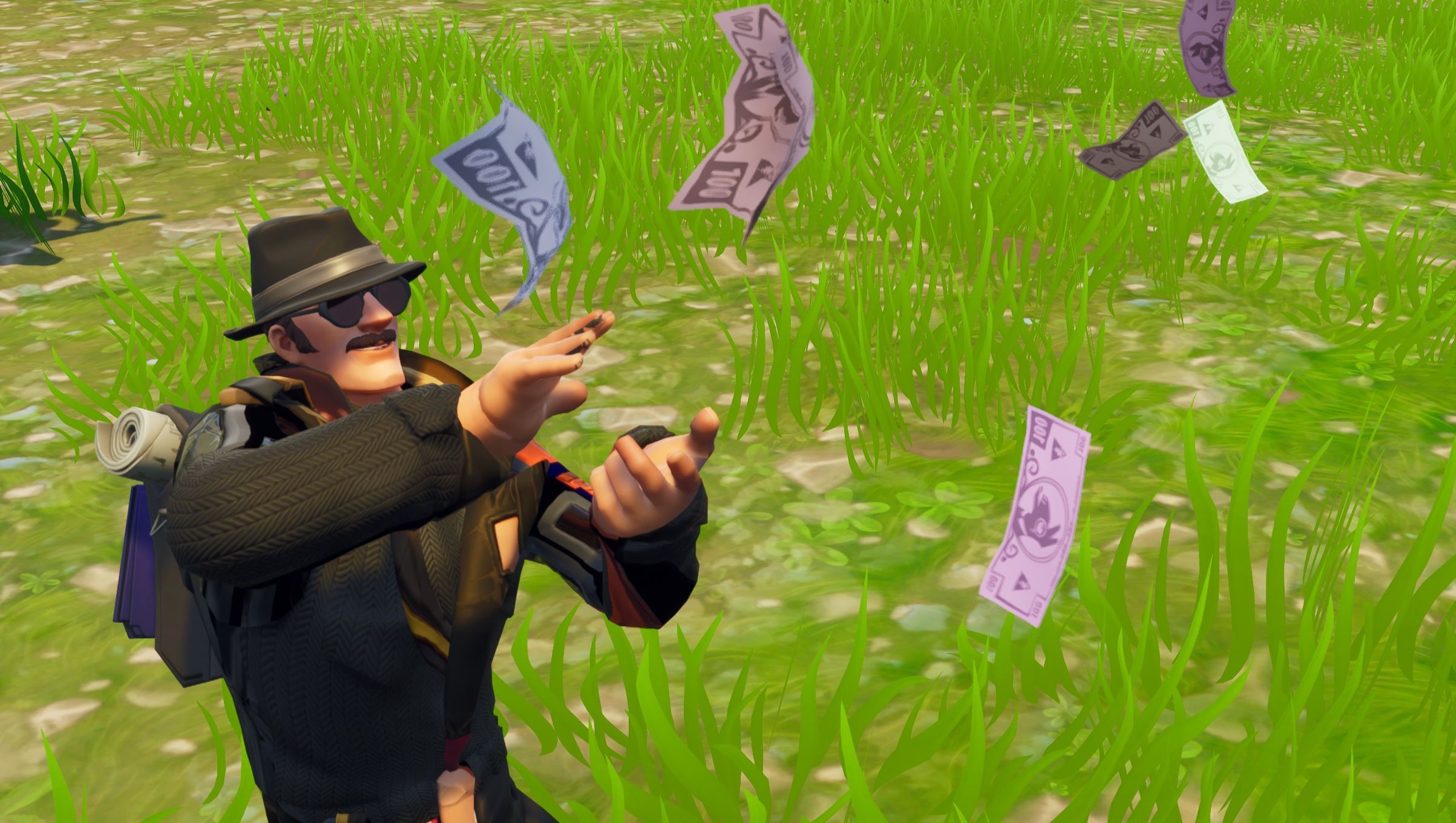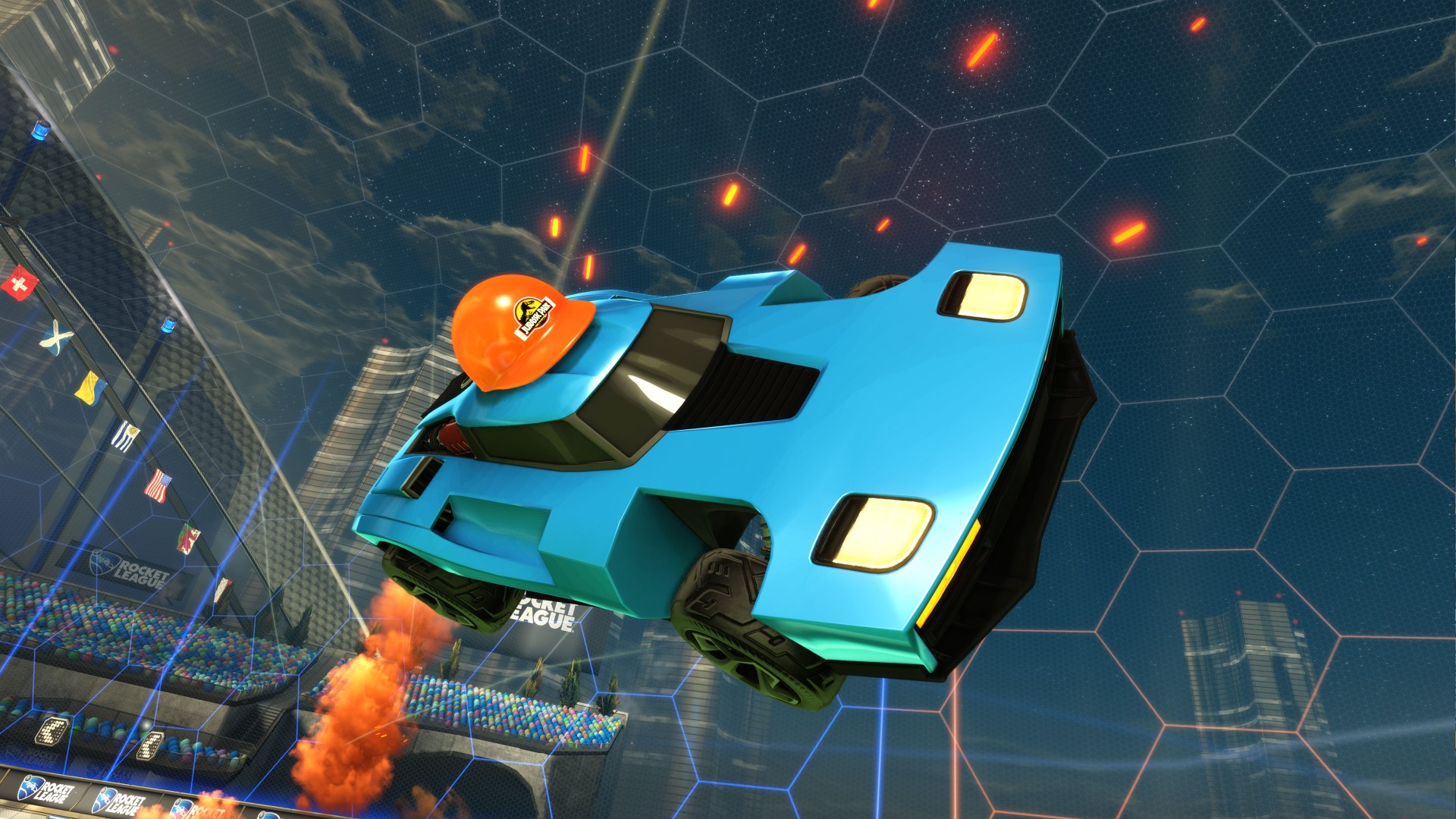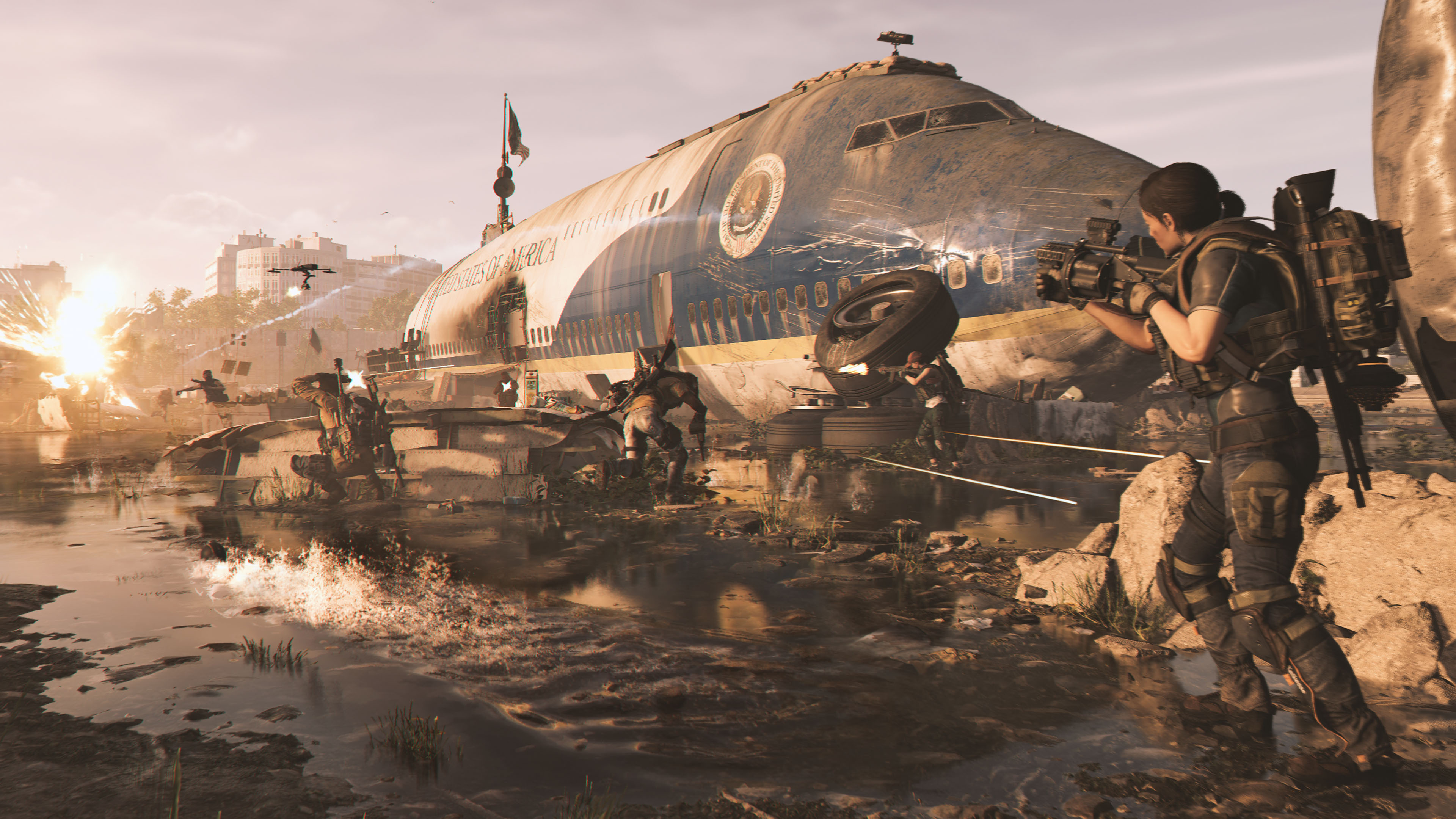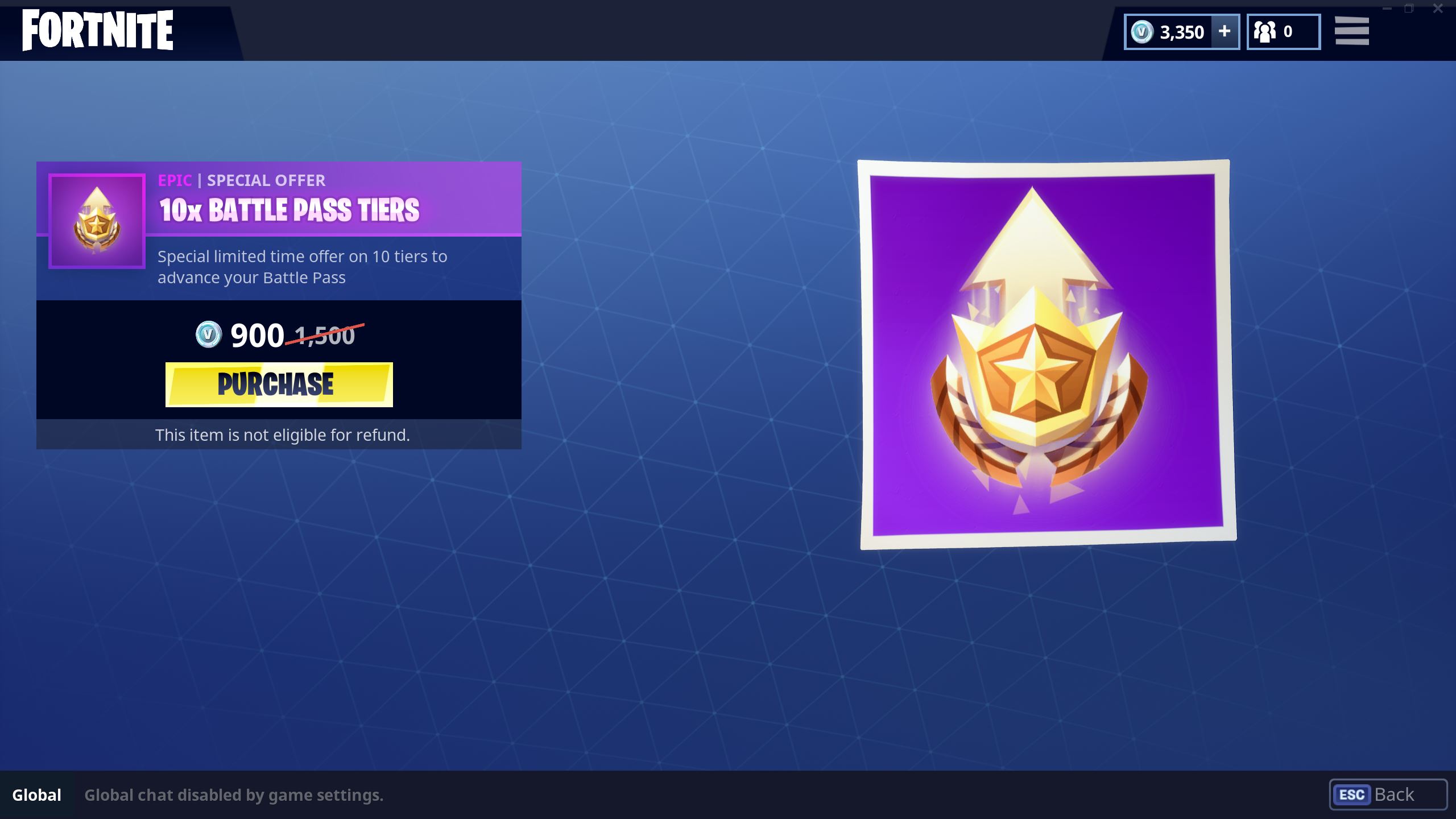Battle passes are replacing loot boxes, but they're not necessarily a better deal
After a year of awful loot box practices, a new wave cosmetic-focused season passes are taking over.

Loot boxes are on the way out. The microtransaction controversy defined gaming in 2017, with loot box systems showing up in almost every major release. Middle-earth: Shadow of War sold orcs in boxes, Call of Duty: WW2 air-dropped gun skins onto Normandy beach, and Star Wars: Battlefront 2 blew it by selling items that granted palpable advantages in their own ugly spin on the trend. Loot boxes are now widely regarded as exploitative, transparently designed to keep players putting money into chance. Whether that's a developers intent or not doesn't matter. The consensus is firm: loot boxes suck.
With countries all over the world calling for investigations into loot box systems to determine if they violate gambling laws, it's likely that they won't be around for long, and those that persist will be required to disclose drop rates in order to maintain operations. Thing is, games still need to make money, and so a new microtransaction format is beginning to trend. Whether it's a model that has the player's best interests in mind or a sly new way to take advantage of addictive tendencies that don't actually enhance the experience remains to be seen. All we know is that the 'battle pass' will probably stick around longer than loot boxes, and that they feel nice going down. But does that make them better?
What are 'battle passes'?
With the start of Fortnite's second season, Epic popularized the battle pass, a model in use by Dota 2 in the lead up to The International each year since 2013. While Dota 2's battle pass is an annual event, Fortnite refreshes with a new pass every three months or so. For just under $10 players get access to 100 tiers of rewards, ranging from XP bonuses to brand new character skins.
The catch is that you need to earn those items through leveling up and completing a set of new challenges each week. Most challenges encourage the use of different weapons or exploring specific areas of the map, candytrail teaching tools meant to familiarize players with the whole of Fortnite. Some challenges have little to do with winning, sending players on treasure hunts or searching for hidden objects all around the map. But they all reward battle stars, points that go towards the battle pass to unlock new skins, emotes, dances, and even loading screens at every tier.
As a nice change from the frustrating mystery of loot boxes, all 100 tiers of rewards are visible from the start. Players know everything they can get and what's required to earn them from day one. The difference is that there's no guarantee they'll have the time or skill to earn it all. Because battle passes are time-limited, players only have 11 weeks to complete the challenges necessary to earn all the loot on the table. It's a $10 promise to play as much as possible for the length of a season.
Where are they showing up?
Rocket League
After rolling out its own contentious version of loot boxes, Psyonix is about to give the battle pass model a try. The Rocket Pass is set to launch later this summer, and based on the early breakdown, it'll work a lot like Fortnite's pass with the exception of challenges. You'll primarily progress through natural play, but challenges that don't disrupt player habits are being explored. Psyonix even outlined how long they expect it'll take players to complete the pass, writing "We estimate that Rocket Pass will take about 100 hours to complete, excluding Pro Tiers."
Keep up to date with the most important stories and the best deals, as picked by the PC Gamer team.

That's about the time I spend playing games in total over a few months. Unless Rocket League is life, then it's probably not the best investment.
PUBG
Completing the loop, PUBG's imitation of a game built in its image arrived with the Sanhok Event Pass. For $10, players get access to 30 tiers of cosmetic rewards, daily, weekly, and Sanhok specific challenges. Reception has been mixed so far; players are unhappy with the rewards, and some are unhappy with the restrictions on progression. PUBG Corp responded by loosening the reins a touch, though some players feel that hitting tier 30 takes up far more time and effort than the $10 pricetag implies. How developers balance the time it takes to complete a pass against the price of entry will likely be a major point of contention as they become more widespread.
Likely candidates
Chances are we'll see some big games adopt this model this fall. With battle royale modes coming to both Call of Duty and Battlefield, expect to see some kind of premium cosmetic track, especially in the latter. EA has confirmed that all maps and modes will be free, but money has to come from somewhere and it's probably going to be holiday-themed WW2 clothing. If BF5 does get a battle pass, it'll be interesting to see what price they run with. Fortnite is free-to-play with a $10 pass, and BF5 will be a $60 game at launch. How generous can EA afford to be, I wonder?
Destiny 2's first year was a nightmare for some players, with expansion passes splitting the user base between multiplayer maps, modes, and certain activities. While we don't know exactly what Year 2's Annual Pass will look like, with the fluff out the window (goodbye, awful CG cutscenes!) Bungie is hoping to stick to a more regular update schedule. Weekly checklists already there, so tying guaranteed weekly rewards to the Annual Pass seems like a no-brainer.

Forza Horizon 4 will likely benefit from the mistakes of Forza 7's awful loot box implementation and dole out cars at a steadier pace. The Division 2's first year of expansions are going to be free, but I suspect some sort of premium pass will supplement such a seemingly generous model. Nearly any game is a valid candidate. Developers want to keep people playing their games, and transparent premium pass systems with smaller, but more frequent updates incentivize players to check back every week rather than every few months.
Should we be worried?
Battle passes might feel rewarding, but they're designed in the interest of keeping you playing and spending money.
Battle passes strip away random chance, but double down on the time required to get what you want. Fortnite's coolest skins tend to sit in the back half of the pass, and most players can get there with a few hours of play a week throughout an entire season, but a fire under your ass is still a fire under your ass. It's that very creeping sense of urgency that's leveraged to get people to buy more stuff, and at the least, to keep playing every week. If you have a busy life, and I'm sure you do, the pressure can mount quickly.
Epic is way ahead of you. Drop 150 V-Bucks ($1.50 US) and you can skip the 10 stars required to advance a tier. On occasion, tiers are sold in bulk at a discount, too. PUBG's event pass also sells tiers for impatient players (or those just short on time), and caps daily XP gains that go towards rewards. Besides the initial purchase, no further spending is required to finish either pass, but it's still fairly annoying to run into a ladder salesman around every bend of a steep, steady mountain trail. If you have the money to spare, it's easy to drop a couple spare bucks on tiers here and there just to be safe. Before you know it, you'll have spent $40 on fast-tracking through the pass, absolutely drowning in cosmetics.

Keeping colorful carrots just out of reach against the threat of limited time appears to be the method for driving more purchases per player, a convenient way to make sure whales (and weak people like myself) are still able to spend money with reckless abandon. Stay aware of your spending habits, and make sure that you actually want that tier 100 skin. And as more passes for your favorite series come out, make sure they actually support the way you like to play those games.
Battle passes might feel rewarding, but they're designed in the interest of keeping you playing and spending money. The time you put into a game should primarily be for the sake of play, not because you strictly want to chase cosmetic rewards and accomplish arbitrary goals that don't enhance the time you spend in a game. More importantly, remember that the hidden cost behind the relatively cheap $10 price tag is hours and hours of your valuable time. You can always make ten more dollars (until the inevitable collapse of capitalism), but whatever time you have left after work isn’t going to increase (and there are so many games coming out in the next year).
James is stuck in an endless loop, playing the Dark Souls games on repeat until Elden Ring and Silksong set him free. He's a truffle pig for indie horror and weird FPS games too, seeking out games that actively hurt to play. Otherwise he's wandering Austin, identifying mushrooms and doodling grackles.


